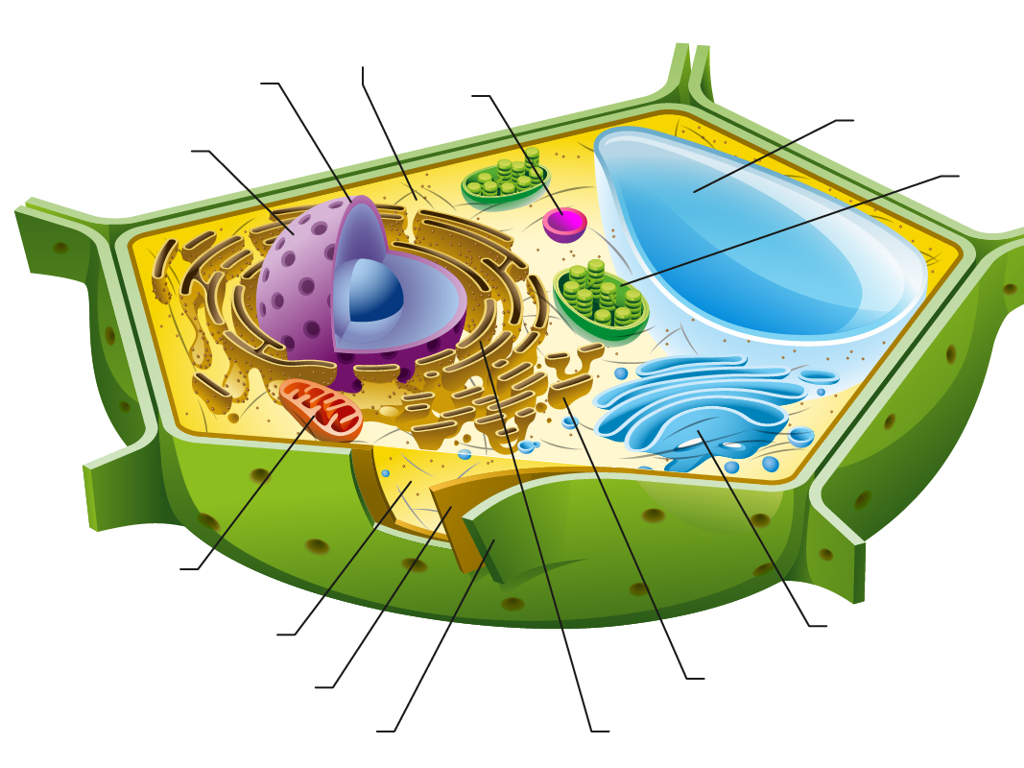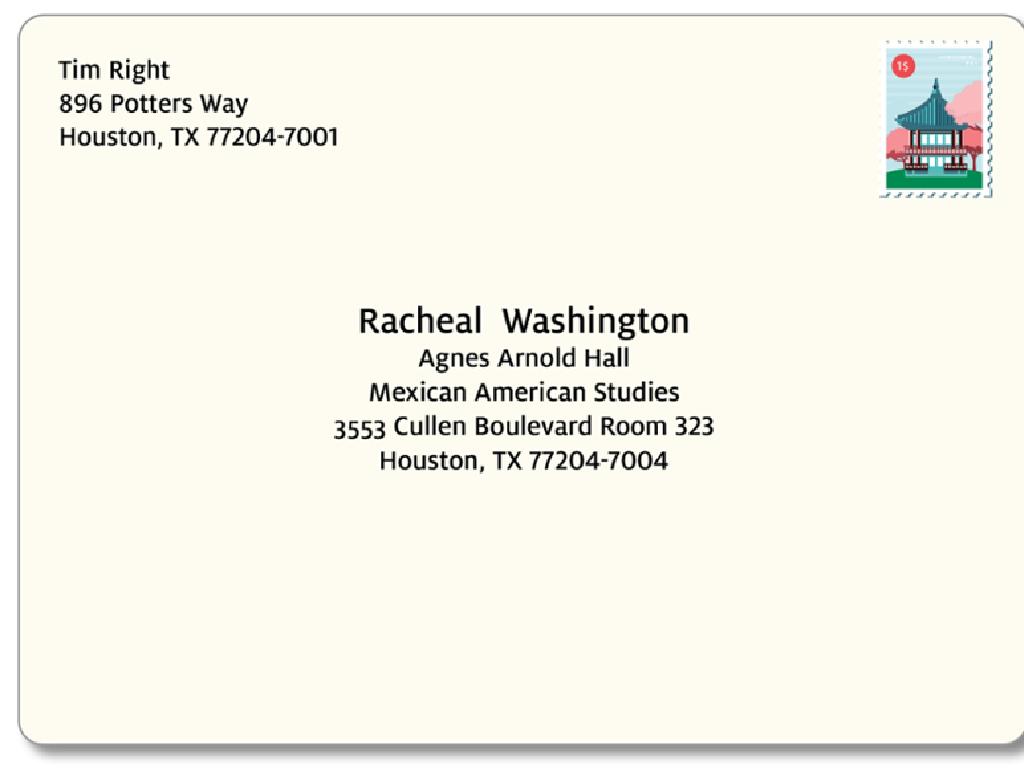Capitalizing Days, Months, And Holidays
Subject: Language arts
Grade: Fourth grade
Topic: Capitalization
Please LOG IN to download the presentation. Access is available to registered users only.
View More Content
Capitalizing Days, Months, and Holidays
– Capital letters start days and months
– Examples: Monday, Tuesday, January, February
– Holidays also begin with capital letters
– Examples: Christmas, Thanksgiving, Fourth of July
– Capital letters show importance
– They help us recognize special times
– Review: Capitalization basics
|
This slide introduces the concept of capitalization with a focus on days, months, and holidays, which are always capitalized in English. Emphasize that capital letters are not just for the beginning of sentences; they also highlight the names of specific times and events, showing their importance. Provide examples for each category and explain that these are proper nouns, which is why they’re always capitalized. A quick review of capitalization rules can include the first word of a sentence, names of people, and places. Engage the class by asking them to list today’s day, this month, and the nearest holiday to practice capitalization.
Capital Letters: Days, Months, and Holidays
– What are capital letters?
Big letters used at specific times, like the beginning of sentences.
– Importance of capital letters
They show something is important, like a person’s name or a place.
– Examples of capital letters
Used for starting sentences, names, places, and the word ‘I’.
– Capitalizing days, months, holidays
Always use them for days like Monday, months like January, and holidays like Thanksgiving.
|
This slide introduces the concept of capital letters and their significance in written English. Capital letters are not just larger versions of their lowercase counterparts; they serve specific purposes in our language. They indicate the beginning of a sentence, proper nouns, and the pronoun ‘I’, helping to convey respect and importance. It’s crucial for students to recognize these cases to write correctly and respectfully. Provide examples on the board, and ask students to come up with their own examples of proper nouns that require capitalization. Emphasize the importance of capitalizing days of the week, months of the year, and holidays, as these are common areas where capitalization is required.
Capitalizing Days of the Week
– Seven days in every week
– Capitalize each day’s name
– Always use a capital letter for days like Sunday, Monday, etc.
– Examples: Monday, Tuesday
– For instance: Sunday, Monday, Tuesday, Wednesday, Thursday, Friday, Saturday
– Practice writing days correctly
|
This slide introduces the concept of capitalization as it applies to the days of the week. Emphasize to students that there are seven days in a week and each day’s name should start with a capital letter, regardless of where it appears in a sentence. Provide examples for each day of the week and have students practice writing them out, ensuring they start with capital letters. This practice reinforces the rule and helps students remember to always capitalize days of the week in their writing.
Capitalizing Months of the Year
– Twelve months in a year
– Capitalize each month’s name
– Every month starts with a capital, like ‘April’ not ‘april’
– Example: January, February, March
– Helps distinguish months from other words
|
This slide is aimed at teaching fourth-grade students the importance of capitalizing the names of the months. It’s essential to emphasize that all twelve months are proper nouns and therefore always start with a capital letter. Provide examples of all the months and perhaps show a few written in sentences to illustrate the concept. Encourage students to always check for capitalization when writing dates. You can also have them practice by writing out the months in order, ensuring they capitalize the first letter of each one. This will reinforce the rule and help them remember to apply it in their writing.
Capitalizing Holidays
– Holidays are special celebration days
– Always capitalize holiday names
– Example: Thanksgiving, Fourth of July
– Thanksgiving Day celebrates harvest, Fourth of July is Independence Day, and Halloween is a spooky festival.
– Practice: Write down three holiday names
– Try writing Christmas, New Year’s Day, and Easter.
|
This slide is aimed at teaching students the importance of capitalizing the names of holidays, which are special days of celebration or remembrance throughout the year. Emphasize that just like proper nouns, the names of holidays are always capitalized because they are specific events. Provide clear examples such as Thanksgiving, which is celebrated for giving thanks for the harvest, Fourth of July, which marks the independence of the United States, and Halloween, known for its spooky themes. Encourage students to practice by writing down the names of three holidays they know, ensuring they start each with a capital letter. This exercise will help reinforce the rule and the concept of capitalization in a fun and engaging way.
Capitalization: Days, Months, and Holidays
– Capitalization highlights special names
– Just like we capitalize names of people, we capitalize days, months, and holidays because they are proper nouns.
– It signifies respect for these times
– We show honor and importance to these times by capitalizing them, similar to how we treat someone’s name with respect.
– Clear communication in writing
– Using capital letters helps readers understand that we are referring to specific days, months, or holidays, not general terms.
– Capitalization rules in practice
– Let’s look at examples: Tuesday, not tuesday; July, not july; Thanksgiving, not thanksgiving.
|
This slide introduces the concept of capitalization in the context of days, months, and holidays. Emphasize to students that capitalization serves multiple purposes: it helps us recognize these words as proper nouns, which are the special names of specific times; it is a sign of respect; and it ensures clarity in our written communication. Provide examples of each and contrast them with their non-capitalized forms to highlight the difference. Encourage students to always capitalize these words in their writing and to be mindful of this rule when reading. Practice with students by writing sentences together and identifying proper nouns that should be capitalized.
Let’s Practice Capitalization!
– Sentences with missing capitals
– Identify and correct the errors
– Look for days, months, and holidays
– Partner up for the activity
– Discuss and explain your choices
– Share why you capitalized certain words
|
This slide is for a class activity focused on practicing capitalization rules. Students will be given sentences where days, months, and holidays are not capitalized. They need to work in pairs to identify and correct these mistakes. This collaborative exercise encourages discussion, reinforcing the learning process. As a teacher, facilitate the activity by providing sentences with common errors and guide students to understand why certain words need to be capitalized. After the activity, have a few pairs share their corrections and reasoning with the class to ensure comprehension and to address any common mistakes.
Class Activity: Calendar Creation
– Create a calendar for next month
– Capitalize days and month’s name
– Decorate with a holiday
– Use colors or stickers for decoration
– Capitalize the holiday name
|
This activity is designed to reinforce the lesson on capitalization. Students will apply their knowledge by creating a calendar for the upcoming month. They must remember to capitalize the names of the days of the week, the month, and any holidays that occur within that month. Provide them with calendar templates, markers, stickers, and other craft supplies. Encourage creativity in their decoration, especially in highlighting the holiday. Possible holidays depending on the month could be Independence Day, Halloween, or Thanksgiving. This hands-on activity not only helps students practice capitalization but also enhances their understanding of calendars and the significance of holidays.
Capitalization Wrap-Up: Days, Months, and Holidays
– Congratulations on learning capitalization!
– Capitals for days, months, and holidays
– Always start the names of the week, months, and holidays with a capital letter
– Practice is key – stay observant
– When you read, notice how days, months, and holidays are written
– Keep applying what you’ve learned
|
This slide is meant to congratulate the students on their hard work learning about capitalization and to remind them of the key points. Emphasize the importance of using capital letters for days of the week, months of the year, and holidays. Encourage them to continue practicing by paying attention to capitalization in everything they read. Reinforce that practice will help them remember these rules naturally. You can suggest that they write a journal entry about their favorite holiday, making sure to capitalize the necessary words, or have them look for capitalization examples in their favorite books as a fun homework activity.






